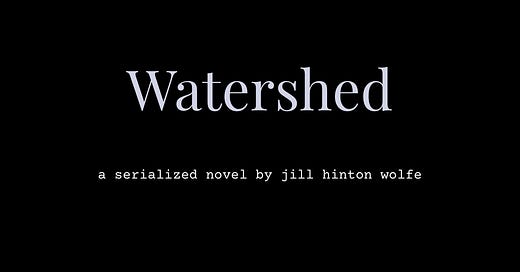Finding the Story I Couldn't Tell In Nonfiction
Writing my way home—through characters, memory, and the land they refused to give up.
For years, I’ve shared pieces of my life through these essays—what it means to be a woman veteran, to navigate civilian life with vision loss, to search for purpose in the aftermath of service. These stories were true. But I kept circling a deeper truth that personal narrative alone couldn’t quite reach.
That truth became Oklahoma Burning.
At its core, Oklahoma Burning is a novel about what happens after the war—when the fight comes home wearing a different uniform. It follows Josie Copeland, a veteran returning to her family’s Oklahoma farm to heal from a combat injury, only to discover a land deal that threatens the place and people she loves. What begins as a personal reckoning turns into a battle against corporate interests weaponizing climate policy for private gain.
If you’ve read Mission, Tribe & Grace: How Veterans Can Act to Lead Change, you’ll recognize the themes—service after service, moral courage, and the messy, nonlinear path of healing and reimagining leadership. Where Mission, Tribe & Grace shares real stories and tools, Oklahoma Burning explores those same questions through fiction. Both books grew from the same soil: my desire to show how veterans can still serve—by protecting their communities, telling hard truths, and standing up to power.
Josie’s story isn’t mine, but we share some of the same battle scars. She wrestles with the kind of wounds that don’t show up on X-rays, and don’t heal on command. She learns that real strength isn’t about proving toughness, but holding grief and hope in the same breath. And it’s also about choosing to protect what matters, even when it costs you.
Starting this Friday, I’ll be serializing Oklahoma Burning here on Substack. The first chapter will be free for everyone. After that, paid subscribers will get early access to each new chapter (plus behind-the-scenes content like character backstories, research notes, writing process insights, deleted scenes), while free subscribers can continue reading on a one-week delay.
This is the story personal essays couldn’t contain—the one where fiction gave me space to speak truths that memoir can’t always hold.
Thank you for walking this path with me. The first chapter drops Friday.
P.S. Don’t want to receive posts related to this project? Simply visit jillhintonwolfe.substack.com/account and manage your subscription there.





